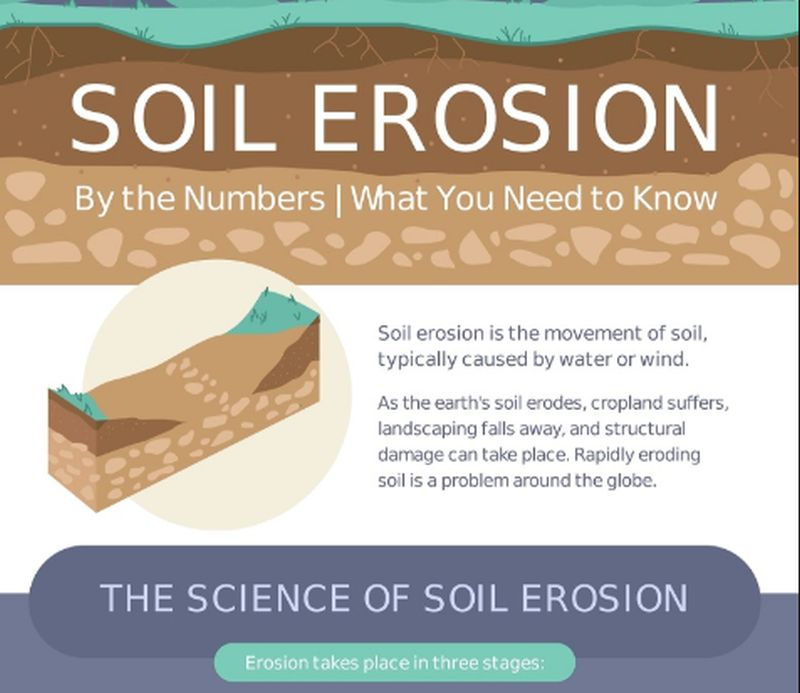When taking steps to protect the environment, we can often overlook one crucial element: soil. Across the globe, we increasingly lose soil through a variety of processes called soil erosion. Losing our productive soil faster than it can be naturally replenished can have catastrophic implications.
Effects of soil erosion
Soil is vitally important to you, since it is responsible for crop production and supports the forests from which we extract the lumber we use to build homes. Further adding to the downside of erosion, displaced soil causes severe damage by siltation to waterways, lakes, and ponds. One also needs to consider the degradation or destruction of fish and wildlife habitats.
The science behind soil erosion
At a microscopic level, soil is far more complex than simple grains of degraded rock and organic material. Tiny integrated units called colloids both store and release moisture and nutrients to plants. They are some of the initial building blocks of healthy, productive ecosystems. Losing soil to erosion may not only be disastrous for animals and plants, but also for you. Loss of healthy, productive soil has the potential to cause worldwide famine, among other catastrophic environmental disasters. Making foods more expensive and difficult to obtain due to erosion and reduced growing capacity can’t help anyone.
Why you should consider it?
Whether you are a backyard gardener or farmer, you can take effective measures to help conserve and protect soil. Acquiring knowledge of the problem of soil erosion is a good first step. You can make a difference in this important fight to protect one of our often overlooked but vital natural resources: soil.



